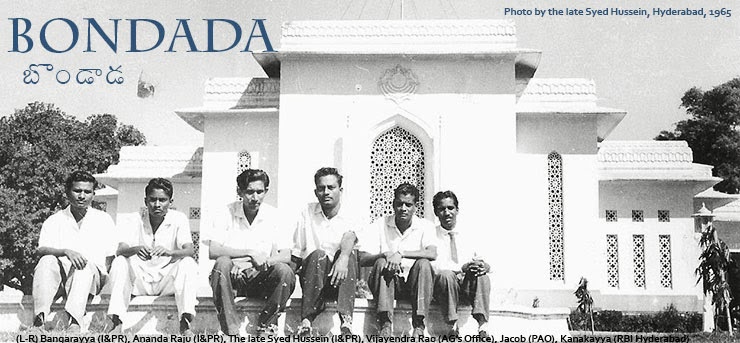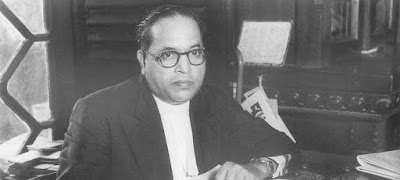Letters to the editor
Schools these days have a healthy mix of male and female students. The same cannot be said for Indian corporates.
While gender auditing and stereotypical questions continue to attract the mainstream, it is important to strike the right balance between “entertainment” and “information”. While quizzes can have Sunny Leone dancing to bring the entertainment factor in place, there is also the informative angle to it by highlighting her achievements as an animal rights campaigner. Such questions are both entertaining and educative – important hallmarks of a great quiz.
There are any number of EPW readers who may not have institutional affiliation or subscription to EPW. Reddy deprived many of these readers their free access to EPW. I wonder whether Krishna Raj would have gone for such wholesale commercialisation of EPW, and also wonder whether the new editor, Paranjoy Guha Thakurta, will undo the damage. – P Radhakrishnan
Of course, one should qualify this statement with the caveat that British and US academia always had an open door for talent, though often regarding such talent as mildly exotic social species. – Prof Subho Basu
A selection of readers' opinions over the
past week.
Scroll · Today · 04:30 pm
Photo Credit: Sajjad Hussain/AFP
Caste politics
While I agree with the piece
in general (and mourn the past), might I add that these are not the 1990s (“Could the Dalit students’ agitation be Modi’s Mandal moment?”).
With all the sources of information at their disposal, students today are a
misinformed lot and Narendra Modi is banking on their short attention spans.
Like everything else, the
suicide and the agitation shall be forgotten in a month or two. This is not a
Mandal moment, just a fashionable intermezzo before the next new atrocity
erupts. Life goes on, sadly. – Kishore Tejaswi
***
Narendra Modi was never the
leader of the backward classes and Scheduled Castes/Scheduled Tribes. Although
he got a fair share of their vote that swung the 2014 Lok Sabha elections in
his favour, he knows that these groups will not stick with him and will return
to their parent parties.
That’s why he is not acting in
this case because it will be futile for him to act and displease his core base
supporters – upper-caste Hindus. He knows that they are behind him and if he
does something wrong, then they will ditch him as well. – Vishal
Jindal
Patriarchal perspective
This was the danger which I
discussed with my friends when this government came to power in 2014 (“First Chennai, now Hyderabad: Has the government decided
that all dissent is anti-national?”). Those who have read RSS and
BJP ideology know that they believe in a patriarchal system of society in which
elders and most importantly upper castes are always right, and those who are on
the receiving end – namely youngsters and lower castes should obey their
masters dutifully.
It is their firm belief that
no student or children (for them a person is child as long as his/her elders
are alive) can question elders in a family and in society. We should see all
these student-government clashes from this perspective.
They also believe that any
criticism, debate or discussion will raise doubts on their governing ability
and so they crush any such attempts.
The BJP’s problem is that it
sees everything through the prism of “us vs them”. But this will lead to their
downfall. – Vishal Jindal
Caste considerations
It’s true that reservations
have nothing to do with the development of common Scheduled Castes and
Scheduled Tribes, but only creates a slavery system for SCs, STs, MLAs and MPs
(“Despite having 40 Dalit MPs, why has the BJP ignored Dalit
complaints? Dr Ambedkar has the answer”).
This is the reason why with
the support of slaves, the ruling parties are removing reservation in various
places of government through privatisation, and rejecting reservation in higher
education and rejecting reservation in promotions through government orders.
Now it’s time to demand that
the government scrap reservations in politics. – Sivaji A
Credibility in doubt
I’m writing in to let you know
that I’m deeply saddened by this article and that it is well written (“Love, justice and stardust: A requiem for Rohith Vemula”).
However, the author makes a claim that reserved students are discriminated
against in IITs. As a student of IIT Madras I can say this isn’t true, at least
over here. Nobody knows or even asks each other’s JEE rank, let alone category.
They most certainly aren’t segregated in hostels. They don’t even get unique roll
numbers in class and the teachers here never discriminate between students
based on caste. Everyone is treated the same.
This one sentence in the
article makes me doubt the knowledge of the author and I wonder how many of the
other claims made in the article are false or poorly researched. Please do
provide the sources of your information in your articles. It will help readers
decide what and what not to believe. – Vaibhav Nayel
Minister's mess
I feel the onus lies with
Smriti Irani, our HRD minister (“So who exactly is politicising Rohith Vemula’s suicide?”).
I don’t understand why on earth she is getting embroiled in such controversies.
On many previous occasions, she has made a fool of herself by speaking
prematurely. Her presser just after Rohith Vemula’s suicide says a lot about
her ignorance. Now she has to eat humble pie because the prime minister has
spoken belatedly to clear the air, indirectly putting the blame on the HRD
minister. – Ravindra Arakeri
Evident bias
Good try, Akash Banerjee (“As Modi completes 20 months in office, 20 numbers he should
keep in mind going ahead”). We wish you had removed your blinkers
while writing the piece. You can become prime minister for six months and try
to rectify the shortcomings. You forget the role of the Opposition in creating
all possible hurdles after losing power. Writers need to be rational and
unbiased while writing about our country. – Ravindra Krishna
Hidden
atrocities
I take the report as true,
without any investigation. The story has entered the public domain – this in
itself is proof of it being true (“Déjà vu: Chhattisgarh’s security forces accused of
large-scale sexual violence yet again”). The Indian psyche and
politics never allows such atrocities inflicted on tribals and destitute to
surface in the mainstream media. Shouldn’t we take pride in having defeated
ISIS in their odious game? After all, we run with handicaps like democracy,
free media, welfare state, among others. – Farooque Shahab
Skewed perspective
The use of Shivaji as a symbol
of a Hindu king waging war against Muslim Mughals is a complete parody of
history (“Why BR Ambedkar’s three warnings in his last speech to the
Constituent Assembly resonate even today”). Shivaji did not fight
for Hindus and Mughals did not fight against Hindus – both fought for their
respective empires. The writer’s judgement is biased and religiously motivated.
– Dhruv Badolia
Meaningless freedom
This really was a very
shocking story of rape victims. It looks like we are still far away from
independence (“In Muzaffarnagar, rape videos herald death, judgement and
communal incitement”).
Your article only mentions
victims from one community. But there have been reports of rape in the Muslim
community as well, forcing them to flee their homes and leave behind their
landholdings. I think the writer is ill-informed or she has only described the
pain of one community.
These were the worst communal
riots in the history of Muzaffarnagar for which the political parties were
responsible. I feel our respected freedom fighters devoted themselves to the
country but our leaders have sucked the peace and harmony from India today. –
Mohd Zuhaib
Claiming a legacy
I am
not supporting any of the so-called special efforts by the rightist brigade to
claim credit or ownership of any lineage (“Photoshopping history: Fake Nehru letter aside, here’s why
BJP wants to lay claim to Netaji’s legacy”). However, I am very
curious to know how come almost all of your articles are bereft of even an iota
of criticism of the much lauded “Nehru Gandhi family”.
If a legitimately elected
government is proposing some other point of view, can’t it be given a bit of
space? Do only Nehrus and Gandhis hold all the intellectual capacity of the
country? Much nepotism and corruption has taken place in their presence and
indirectly or directly been promoted by them. At least now your eyes should
open a bit to newer realities. – Vilas Kulkarni
Question time
This article made for a very
interesting read (“A question for Indian quizzers: Where are the women?”).
Quiz is perceived as a “battle of the mind sport” and an “intellectual
activity” among the general public. The lack of women participants in corporate
events stems from the lack of diversity in Indian companies.
Schools these days have a healthy mix of male and female students. The same cannot be said for Indian corporates.
Globally, the notion of women
quizzers is much more accepted. Where there is a strong culture of pub quizzes
in places such as UK, US and Australia, the same gets translated to the
corporate world.
While gender auditing and stereotypical questions continue to attract the mainstream, it is important to strike the right balance between “entertainment” and “information”. While quizzes can have Sunny Leone dancing to bring the entertainment factor in place, there is also the informative angle to it by highlighting her achievements as an animal rights campaigner. Such questions are both entertaining and educative – important hallmarks of a great quiz.
A Women’s Day quiz at
companies, where we celebrate the achievements and spirits of famous women
across all boundaries, may be the starting point to bring about this cultural
shift. – Daksha Ballal
Alarmist notion
I think the writer is
overreacting (“Another Republic Day, another compromise on nuclear safety?”).
India needs more energy, and solar power can’t supply all of it. Providing
compensation to project affected people is the government’s responsibility and
some cost to the environment is inevitable in generating more energy and
improving the country’s Gross Domestic Product. – Nishant Kale
EPW's identity
I enjoyed reading this
write-up (“The legend of EPW: How a weekly magazine became an
institution”). While EPW will certainly survive, its
corporatisation, and by implication commodification, of the precious EPW
knowledge system began after C Rammanohar Reddy became its editor.
The EPW archives are
accessible only to subscribers, which means even past contributors have no
access to EPW back issues. EPW was conceived and developed as an everyman’s
weekly. Alas, it is no more so.
There are any number of EPW readers who may not have institutional affiliation or subscription to EPW. Reddy deprived many of these readers their free access to EPW. I wonder whether Krishna Raj would have gone for such wholesale commercialisation of EPW, and also wonder whether the new editor, Paranjoy Guha Thakurta, will undo the damage. – P Radhakrishnan
Remembering Ramanujan
A simple fact that is often
deliberately understated and not mentioned at all is that GH Hardy was a
Marxist (“What English mathematicians thought of the ‘Hindoo
calculator’”).
The man who knew infinity
offers an interesting insight into the life of Srinivasa Ramanujan, one of the
greatest mathematicians of the 20th century. Though colonialism has ended, we
still have to take a glimpse at one of the world’s greatest mathematicians
through the lens of the colonial power relationship.
Of course, one should qualify this statement with the caveat that British and US academia always had an open door for talent, though often regarding such talent as mildly exotic social species. – Prof Subho Basu
We
welcome your comments at letters@scroll.in
Source: scrollin













